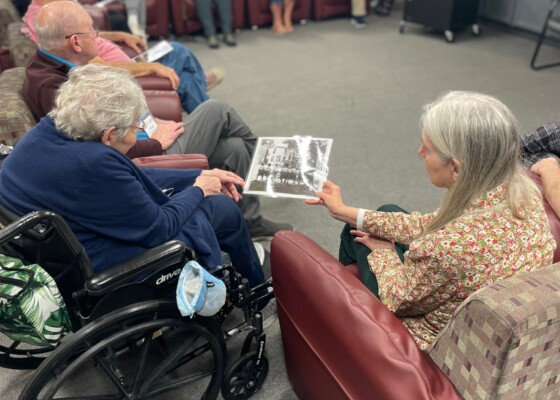What version of Frankenstein should I read?
September 26, 2017We often get asked what version of Frankenstein we’ll be using in our programs or that we recommend. Frankenstein; or, The Modern Prometheus has been around for a long time;…
We often get asked what version of Frankenstein we’ll be using in our programs or that we recommend.
Frankenstein; or, The Modern Prometheus has been around for a long time; over the course of 200 years it has appeared in a number of editions. Most famously, the original version published anonymously in 1818 was significantly revised by Mary Shelley and republished in 1831, along with her reflections about the dare that inspired her to write such a monstrous story. It’s the 1831 version that is most commonly read today and that we’re using in our programs.
Frankenstein is in the public domain, so there are dozens, if not hundreds, of options available through publishers, print-on-demand services and online. Some contain additional essays, footnotes and other materials to provide context and insight into the original novel.
Here are the two editions we recommend, depending on your interests and budget. Both use the 1831 version of the story.
- Simon & Schuster’s Enriched Classic, Complete and Unabridged: Frankenstein; or The Modern Prometheus by Mary Shelley, supplemental material written by Margaret Brantley, 2009. This paperback version is very affordable and widely available. Community Read grantees who request copies of the book will receive this version.
- Frankenstein: Annotated for Scientists, Engineers, and Creators of All Kinds, edited by David H. Guston, Ed Finn and Jason Scott Robert (MIT Press, 2017). This new edition includes fascinating annotations and essays that explain the scientific ideas from Mary Shelley’s time that found their way into the book, as well as draw connections to science and engineering debates and cases today. Each Community Read and Frankenfest host will receive one copy of this edition, since our goal for One State / One Story is to spark conversations about the role of science and technology in our lives.
There are also free digital editions available to read online or download on your e-reader! Check them out:
- Project Gutenberg provides free EPUB and Kindle versions of the book, among others. Read and download them here.
- In January, MIT Press will publish a free open-source version of the book mentioned above, annotated for scientists, engineers and other creators. The online version will include all the annotations from the print edition, plus some new ones. Even cooler, you’ll be able to add your own annotations! We’ll share when it’s available.
By the way, if you want to learn more about the fascinating story of Frankenstein’s multiple editions, you can book Rebecca Baumann’s talk, Stitched & Bound: Frankenstein and the Book through our Frankenstein speakers bureau. Rebecca, a curator at IU’s Lilly Library and an expert on monsters in 19th century literature, will tell you all about this remarkable book, including the very rare first edition housed in Bloomington!
You can also see rare first editions of Frankenstein, along with many later versions, in two upcoming exhibits made possible by One State / One Story. Starting next spring, Notre Dame’s Hesburgh Library will display an 1818 Frankenstein along with some very cool later editions, including the very first movie tie-in version, created for the 1931 Boris Karloff film! Next summer, The Lilly Library in Bloomington will exhibit their first edition along with materials about the history of science and women in science that provide context for the original book.
One State / One Story: Frankenstein is an Indiana Humanities program and has been made possible in part by a major grant from the National Endowment for the Humanities and in partnership with the Indiana State Library and Indiana Center for the Book. Any views, findings, conclusions, or recommendations expressed in this program do not necessarily represent those of the National Endowment for the Humanities.

